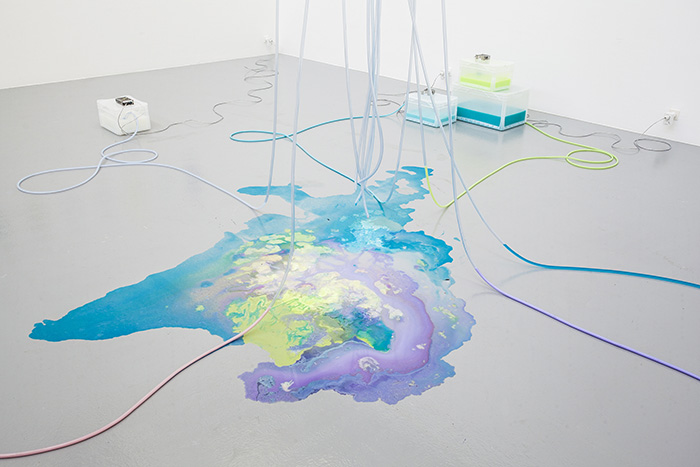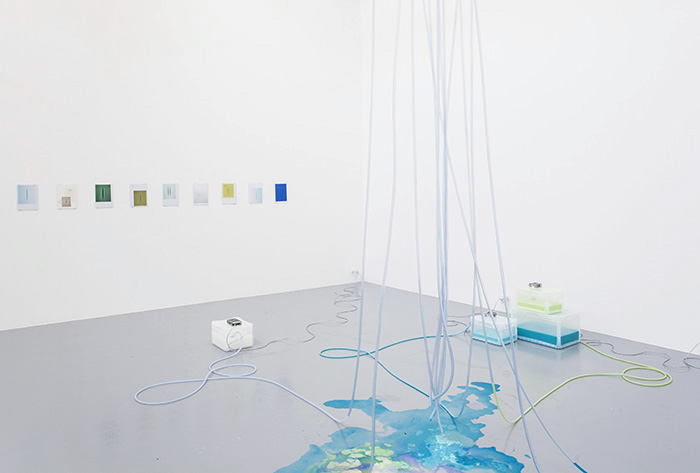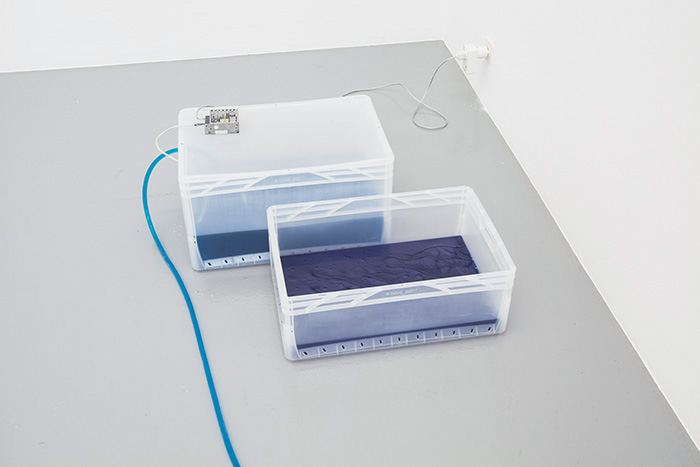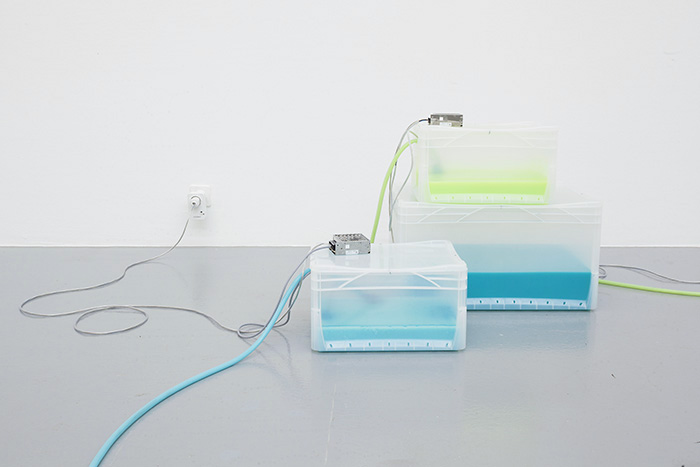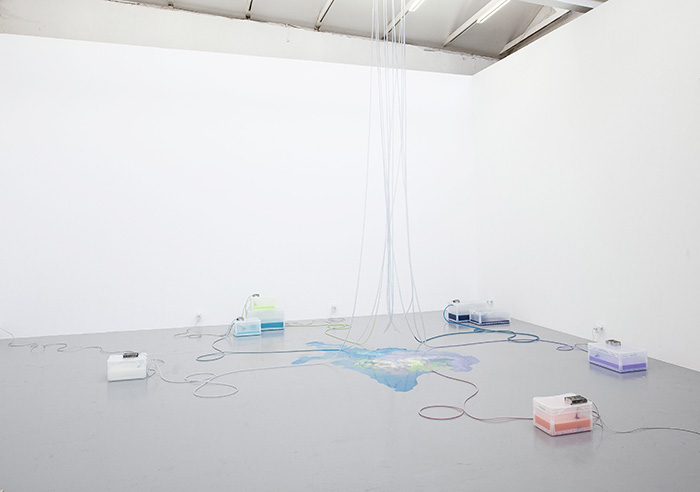Antibacterial Ground Reading is a fortune-telling experimental arrangement in which liquid cleaning agents of different colours, odours and consistencies meet in a ground work to form a tectonic cleaning oracle. The liquids are spouted by remote-controlled pumps through an impenetrable mechanism from various containers via long hoses onto the ground.
The viewer has the opportunity to ask questions about his future and to ask the artist for activation via whatsapp. The algorithm according to which the pumps are activated is the personal and blind sensation of the artist who is not present, who can set the respective liquids in motion with his smartphone.
A psychologist on site can help the questioning guest to interpret the landscape in shape, color and smell in relation to his question.
